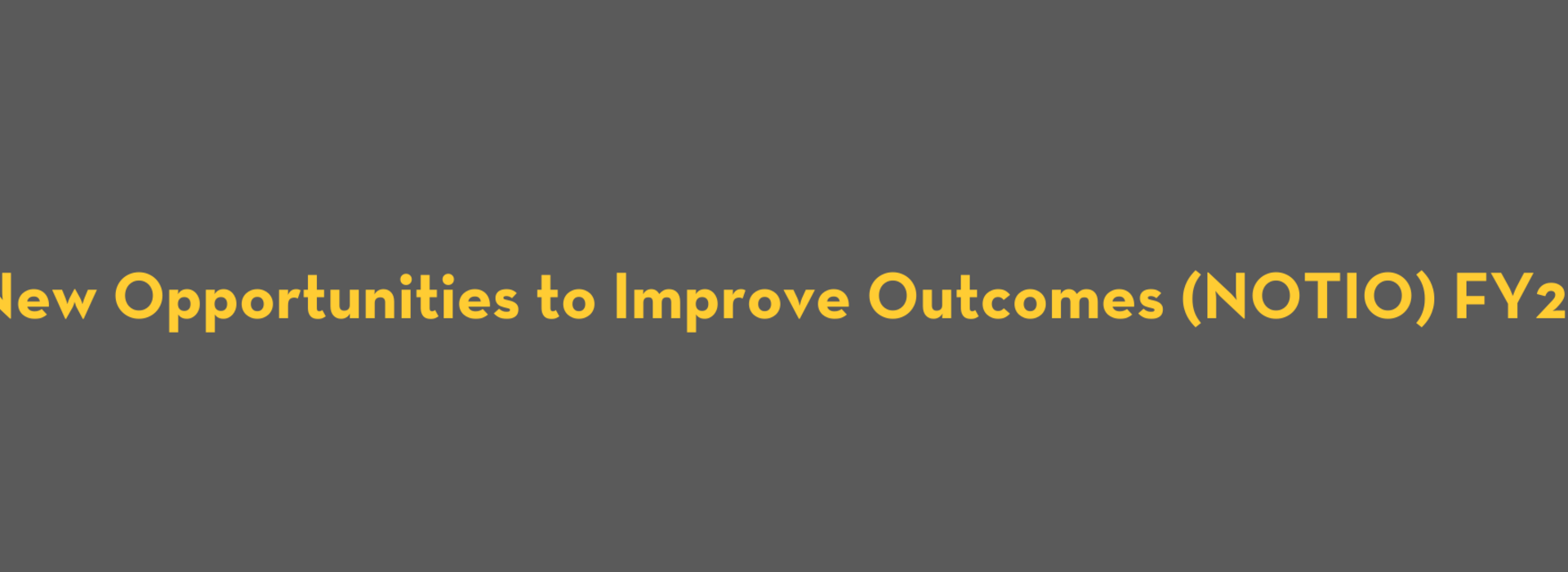
New Opportunities to Improve Outcomes (NOTIO) FY22
Scope and Eligibility
The Medical School will make up to $30,000 available to fund pilot projects to develop new innovations that can directly impact patient outcomes through more effective clinical care. The overall purpose of this funding mechanism is to encourage novel idea generation and rapid prototyping of innovative clinical care models. The awards are targeted at forcing applicants to think “out of the box” for new ideas. Applicants are encouraged to collaborate across the University with other schools (eg. Engineering, Business, Vet Medicine, Public Health, Nursing, Pharmacy). All applications must include demonstration of broad-based collaborations. All Medical School faculty, including affiliated faculty, are eligible to apply.
Objectives
The broad objective of this program is to fund innovative projects which can directly impact clinical care in all areas of medicine: Proposals may address care model innovation, prevention, quality, safety, diagnostics, devices, app development, EMR enhancement and incorporation of existing technology in innovative ways. Deliverables include the development of a minimum workable prototype that can be deployed in the clinical setting.
Application Process and Award Amount
Applicants will submit:
- a Cover Page
- Research Plan (two pages maximum, 12 point Times New Roman, 0.5-inch margins, single-spaced, including figures and tables)
- References
- NIH Biosketches
- and Budget.
In addition, applicants will be asked to define quarterly milestones for the proposed project, and the next steps in translation of this project (outside the two-page project description). All projects will have a maximum funding period of 1 year.
Budget Justifications
The budget must include budget justifications. Funding cannot be used for faculty salary, travel, or administrative support. Direct reimbursement for patient care is not allowed.
Review and Evaluation Criteria
The primary review criteria will be the degree of innovation, feasibility of the project within a given timeline, the feasibility of rapid prototyping and direct impact on clinical care to improve patient outcomes. All primary project objectives should focus on a specific patient outcome. An internal peer-review committee will evaluate all written applications. Up to three awards will be made.
Post-Award Requirements and Expectations
Funded applicants will submit a brief (no more than one page) progress report every four months for the one year of the project. At the end of the one-year funding period, a final report (no more than one page) is requested that critically evaluates whether the project has met its primary objective. If appropriate endpoints are reached a plan for scaling the project up across departments or services if appropriate should also be included.
Key Dates
Request for Applications: February 1, 2022
Applications due: April 1, 2022
Award announcement date: May 6, 2022
Please direct questions to Clarence Shannon IV, MD, Associate Dean for Strategy and Innovation, Department of Anesthesiology
Submit to: Christine Kiel ckiel@umn.edu